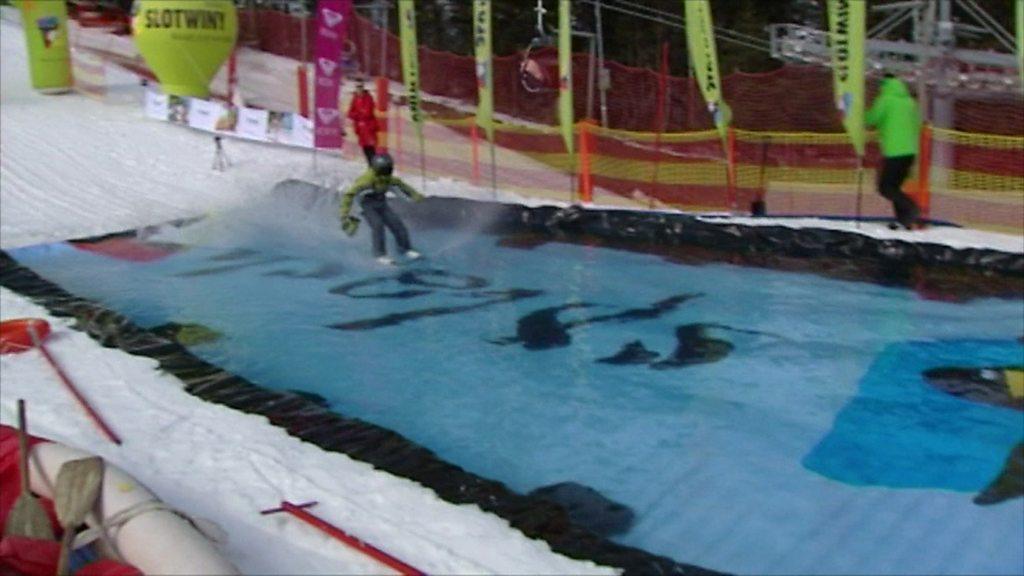Ice Skating: Minimum age raised from 15 to 17 for competitors in senior events
- Published
- comments
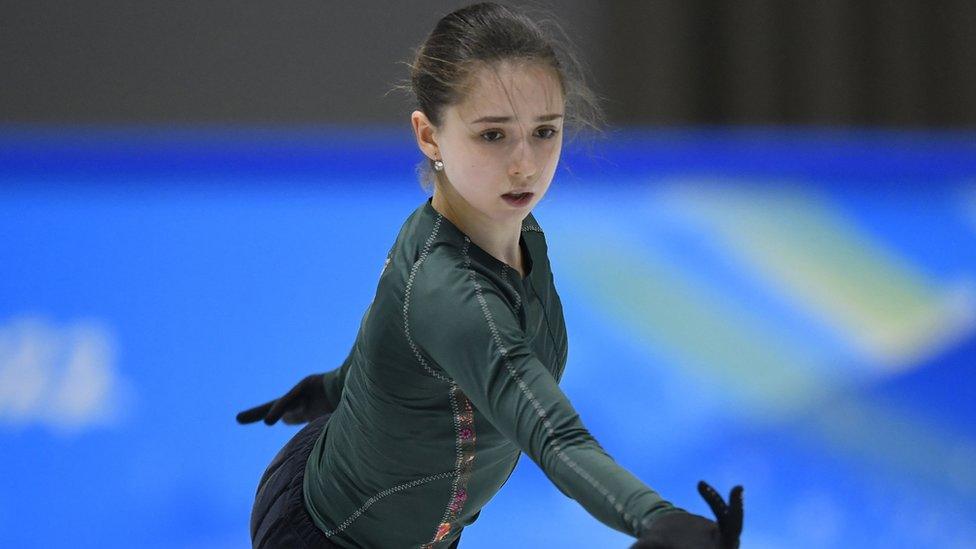
Kamila was the first woman to land a quadruple jump at the Olympics
The organisation in charge of ice skating around the world is raising the minimum age for competitors in senior figure skating events, from 15 to 17-years-old.
The International Skating Union (ISU) has decided to increase the minimum age to help protect skaters physical and mental well-being.
ISU president Jan Dijkema called it a "historic decision" after 100 countries backed the change, with only 16 countries voting against.
The decision comes after the controversy surrounding 15-year-old Russian figure skater Kamila Valieva, at the Beijing Winter Olympics earlier this year.
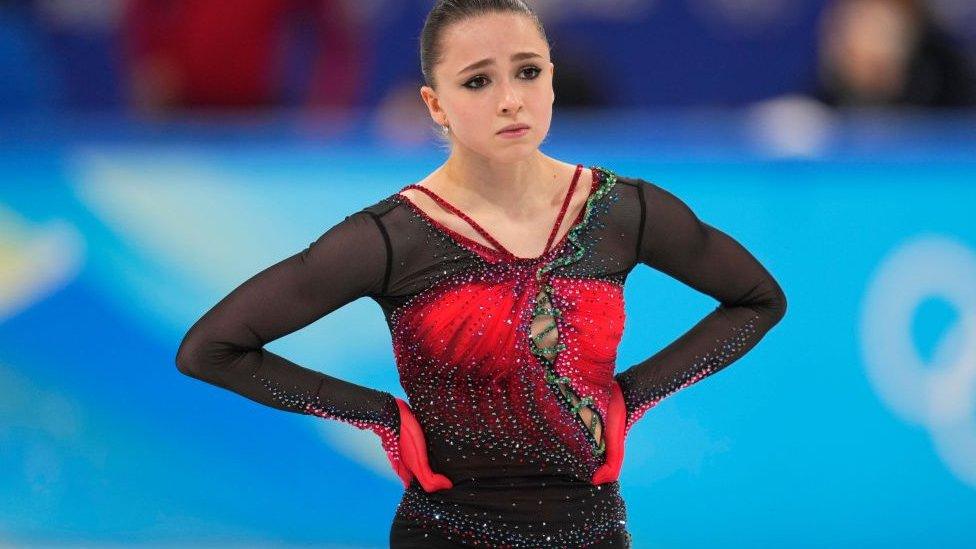
Kamila ended up finshing fourth in the figure skating final at the Winter Olympic Games
British Ice Skating was among those backing the change and said it "fully supported" the move.
The change will be gradually phased in - it will be raised to 16 for the 2023-24 season and then upped again to 17 from 2024-25 onwards.
"The life of an athlete is short and intense, their experience in this short phase sets the platform for the rest of their lives - physically, spiritually emotionally," said Canadian skater and ISU Athletes Commission member Eric Radford.
"While I hear the concerns of certain nations about the immediate difficulty that they might face with this proposal being passed ... is a medal really worth the life of a young athlete?"
The ISU said the decision will protect skaters' "physical and mental health, and emotional well-being".
What happened with Kamila Valieva?
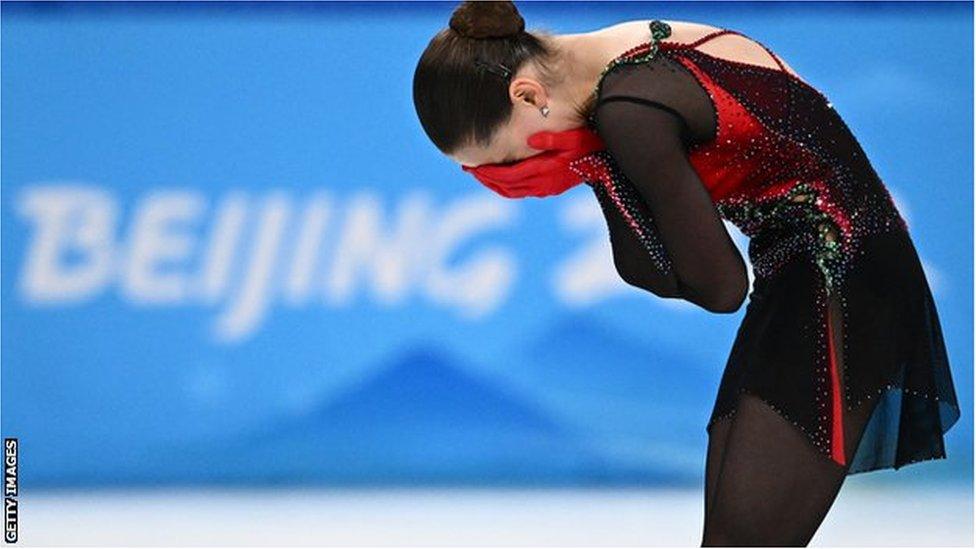
Kamila Valieva, then 15, broke down in tears at the end of her women's free skate routine at the Beijing Olympic Games
Kamila Valieva was just 15 when the Beijing Olympics took place in February.
She was initially praised after becoming the first woman to land a quadruple jump at a Winter Olympics.
It later came out that she had failed a drugs test in December 2021 before the games - which also raised big questions about the people who were meant to be looking after her career and wellbeing.
Despite this she was allowed to compete in the singles event after a court ruling lifted her provisional ban following a series of appeals.
She was favourite for the women's figure skating gold medal but ended up finishing fourth after making a number of errors and appeared upset whilst waiting for her score from the judges.
The way she was treated by her coaches was also questioned, with International Olympic Committee president Thomas Bach describing the lack of comfort offered after her errors as "chilling".
- Published23 January 2020
- Published24 March 2022
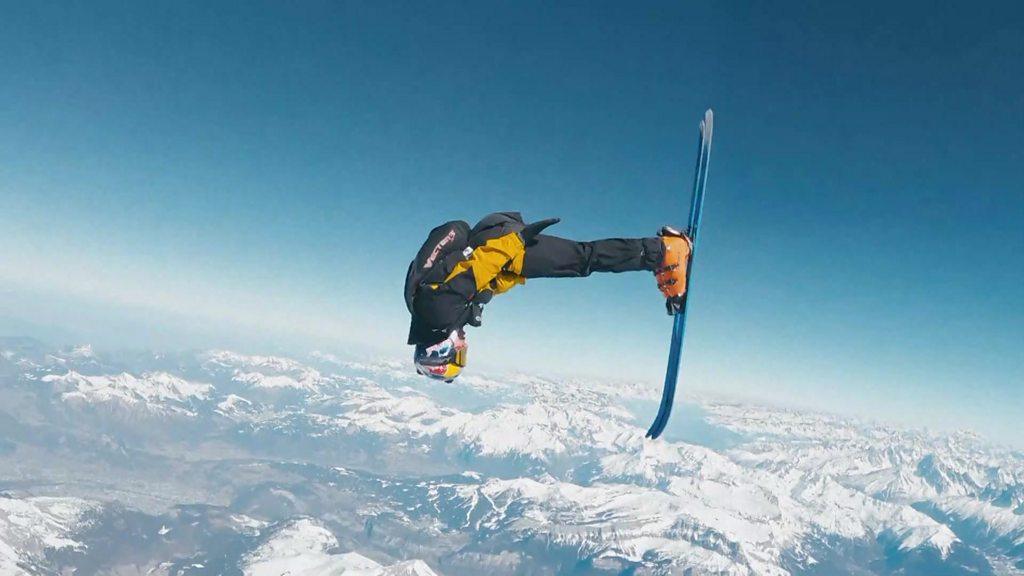
- Published12 March 2018
